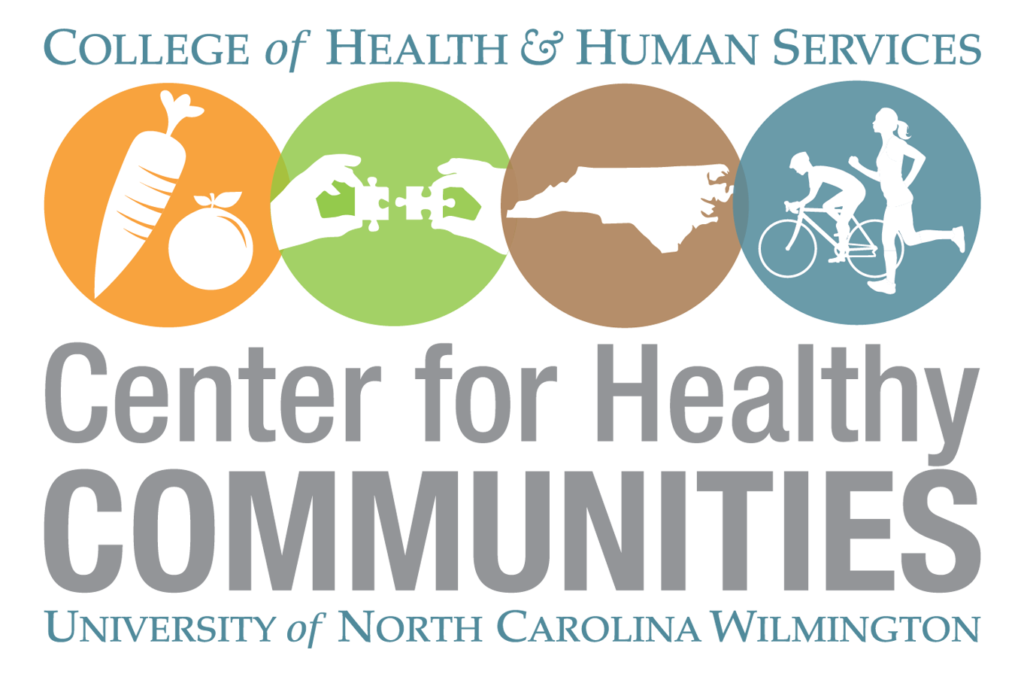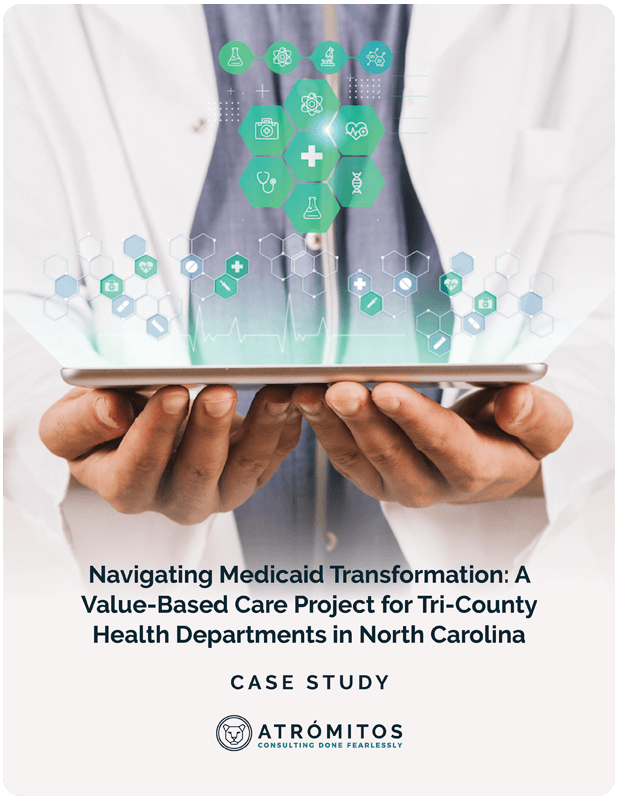February 2, 2021

The University of North Carolina Wilmington, College of Health and Human Services, Center for Healthy Communities, (UNCW CHC) seeks to improve health and well-being by addressing community-identified needs through collaborations between campus resources and community agencies.
The Tri-County Value-Based Care Collaborative project was funded by the Blue Cross Blue Shield Foundation of North Carolina and the Kate B. Reynolds Charitable Trust and piloted by UNCW CHC in partnership with the Robeson, Bladen, and Columbus County health departments.
The Opportunity
In 2015, North Carolina’s General Assembly enacted legislation that directed the Department of Health and Human Services (DHHS) to transition the state’s Medicaid program from fee-for-service to managed care. Under managed care, the state would contract with multiple private insurance companies to administer the Medicaid program.
While some providers had prior experience contracting with regionally based Local Management Entities (LMEs), Medicaid managed care brought a host of new federal and state regulatory requirements for DHHS, the contracted Standard plans, and participating providers. Additionally, DHHS’ design for the Medicaid Transformation included a variety of innovative and complex policy and programmatic changes that would require participating providers to adapt their internal operations and service delivery to ensure compliance.
In the summer of 2019, the Center for Healthy Communities began working in partnership with the Robeson, Bladen, and Columbus County health departments on a Value-Based Care project supporting the tri-county health departments through Medicaid Managed Care and Medicaid Transformation. Each of the local health departments (LHDs) had a unique organizational infrastructure and offered different services and programs within their communities. And LHD leadership had varying levels of understanding and experience with Medicaid Managed Care. CHC had to identify an approach that would provide technical assistance and supports that met the shared and individualized needs of the tri-county LHDs.
Goals
CHC sought to maximize the grant dollars received to support each of the three county health departments in successfully preparing for and engaging in the Medicaid Transformation in North Carolina.
Approach
Atrómitos was initially brought in to help CHC review and revise a readiness assessment developed to identify the perceived needs and challenges that the LHDs had regarding the Medicaid Transformation. Atrómitos sought to ensure that the assessment not only identified the gaps in knowledge but also assessed the basic infrastructure capabilities of each of the LHDs.
Given our prior experience implementing Medicaid managed care and program transformation in other states, we understood the key challenges ahead and the importance of building up both human resource capacity as well as operational systems and processes.
Atrómitos worked collaboratively with the CHC team using the assessment results to develop a series of tools and training that would address the aggregate needs of the LHDs over the course of the 9-month readiness period.
- Training: at the outset of the project, Atrómitos developed a webinar, Understanding North Carolina’s Medicaid Transformation In The Context Of Federal Medicaid Regulation, to establish a baseline understanding of Medicaid regulation for all LHDs starting with the underlying premise of the Medicaid program – Federal/state partnership – and then moving on to Managed care regulations and how NC had crafted its program within the flexibilities and options available to states. Given the importance of the new contractual relationship that the LHDs had to engage in with the Standard plans, Atrómitos delivered a webinar, Principles Of Effective Negotiations: How To Prepare And Execute A Successful PHP Contracting Strategy. The trainings were publicly available and offered to all interested parties. The tri-county LHDs were all provided an hour of Q&A with the Atrómitos team following each training to follow-up with questions and challenges unique to their agency.
- Managed Care Readiness Roadmap: based on Atrómitos’ review of NC’s Standard Plan contract and the Plans’ provider agreements, a guide was developed to support LHDs in their path to Medicaid managed care readiness. The Medicaid Managed Care Readiness Roadmap provided an overview of the process that Standard Plans would utilize to assess provider readiness as well as the types of documentation (policies, job descriptions, reports) that providers (LHDs) would need to demonstrate compliance and readiness. In addition, the roadmap included a crosswalk of policies and contractual requirements, job descriptions, and reports that could be used by the LHDs as a checklist to assess compliance through a self-audit. Atrómitos was available to the grantees to conduct a mock audit and provided feedback to help them prepare for future MCO provider audits.
- Telehealth Guide: telehealth was a relatively new opportunity for LHD providers in 2020 and an area that participating grantees identified for technical assistance. Atrómitos developed a written resource that provided education on the NC regulations that governed telehealth, the opportunities (services) where providers could leverage telehealth, as well as key considerations for implementation.
While the training and tools were developed to address the general needs of an LHD provider in NC, Atrómitos understood that readiness varies among providers, and therefore technical assistance hours were built into the contract to allow each LHD to request individualized support during the course of the project. LHDs requested assistance with a range of activities, from contract review and negotiation strategy to strategy and guidance on how to address local Medicaid transportation issues that were impacting the LHD’s local community.
Conclusion
The tools and technical assistance that Atrómitos provided to the LHDs on behalf of CHC helped to build internal knowledge and capacity within each organization as they prepared to engage with the new Standard Plans and DHHS implemented the Medicaid managed care program.


